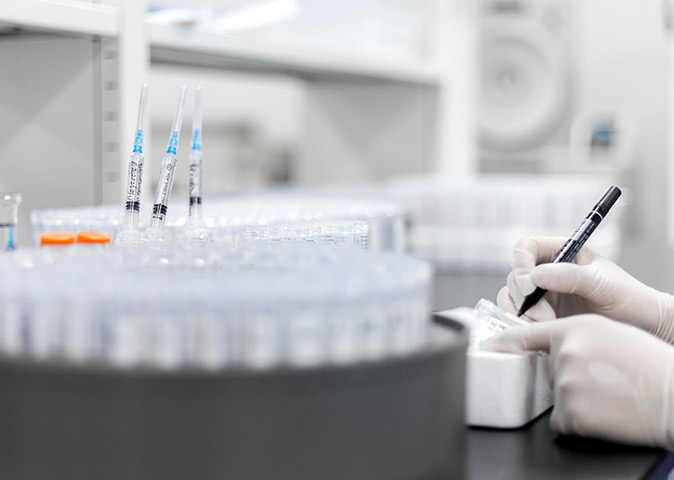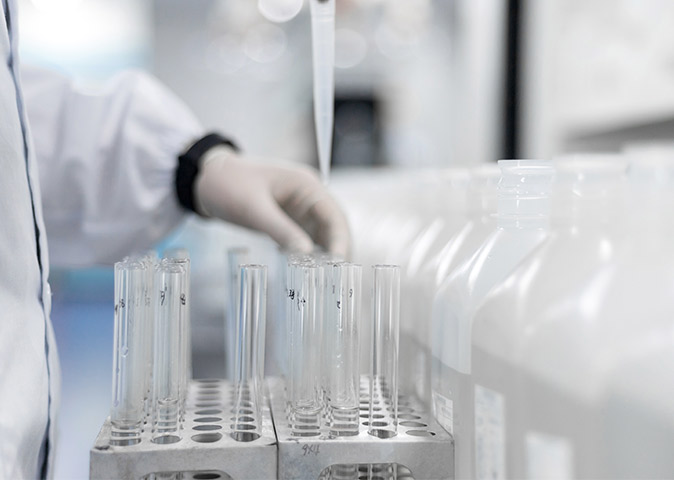The Value of Vaccines
Overwhelming evidence demonstrates the benefits of immunization as one of the most successful and cost-effective health interventions known.
A vaccine is a biological preparation that stimulates the body’s immune system to produce antibodies for fighting against specific diseases. The only human disease ever eradicated, smallpox, was eradicated using a vaccine, and a second, polio, is near eradication, also using vaccines. Immunization avoids about 2–3 million deaths each year, as well as serious disability from vaccine-preventable diseases. Vaccines protect us and our loved ones as well as others in the community who are unable to be vaccinated from serious diseases, directly promoting individual and public health while reducing mortality rates, having made significant contribution to alleviating the burden of disease on families and societies.
Walvax sees the value of vaccines and seeks to share it with a much broader population. As part of comprehensive interventions for disease prevention and control, immunization should be recognized as the responsibility of individuals, communities and governments. We will take the responsibility, and focus on the area which we specialize in, to help everyone live a healthy life.

How do Vaccines Work
The agent in a vaccine stimulates the body's immune system to recognize the agent as foreign, destroy it, and "remember" it
A pathogen is a bacterium, virus, parasite or fungus that can cause disease within the body. The invasion of a pathogen into human bodies is called infection, after which a disease might be developed and the immune system of human bodies is activated to produce specific antibodies fighting against the disease. The above process is how our bodies build defense against diseases, which is, acquiring immunity (protection from an infectious disease) to prevent diseases in the future.
Vaccines help develop immunity by imitating an infection and greatly reduce the risk of infection by working with the body’s natural defenses to safely develop immunity to the disease. Vaccines contain weakened or inactive parts of a particular pathogen (antigen) that induces the production of antibodies within the body without causing the disease or putting people at risk of its complications. Once the body produces antibodies in its primary response to an antigen, it also creates antibody-producing memory cells, which go into action much faster and more effective if the body encounters the same antigen/pathogen again, protecting people from the disease in a preventive manner.

Vaccine Development Pathway
In the past two decades, we have protected hundreds of millions of people from epidemic infectious diseases by providing them with high-efficacy and low-cost products.
The development of a new vaccine generally includes the exploratory stage (identification of the antigen and preparation of the vaccine), pre-clinical testing, clinical development, regulatory review and approval, as well as post-marketing surveillance. It usually takes more than 15 years from identifying the antigens to having the vaccine being launched to the market.
An experimental vaccine is usually first tested in animals to evaluate its safety and potential to prevent disease, and then tested in human clinical trials in three phases. A phase I clinical trial is to assess the safety of the experimental vaccine in a small amount of healthy population who haven’t been exposed to the disease and gain early information about how well the vaccine works to induce an immune response in people. In the absence of safety concerns from the phase I clinical trial, a phase II clinical trial will be performed to provide additional safety information on potential adverse reactions, examine the relationship between the dose administered and the immune response and provide initial information regarding the effectiveness of the vaccine. A phase II clinical trial typically also includes a control group consisting of people who may receive a placebo or another approved substance. The experimental vaccine is then administered to people of a larger scale in a phase III clinical trial to generate critical information on effectiveness and additional important safety data. The efficacy of an experimental vaccine (the reduction in the occurrence of the disease among those vaccinated when compared to those unvaccinated) is typically assessed in the pivotal phase III clinical trial. Results obtained from the phase III clinical trial may also be the basic of regulatory approval for the experimental vaccine. The phases of clinical trials may progress sequentially, but it is also not uncommon for the phases of clinical evaluation to overlap.
In China, vaccine manufacturing facilities are designed, equipped and certified in accordance with applicable GMP standards for the production of a particular vaccine product. In line with the industry practice, manufacturing facilities for one vaccine product is generally not convertible for the production of another, without re-tooling, re-equipping or re-certifying in accordance with the relevant GMP standards, which could be very time-consuming and costly. Thus, every new vaccine that has been first brought to the market could be seen as one of humanity’s greatest triumphs.
